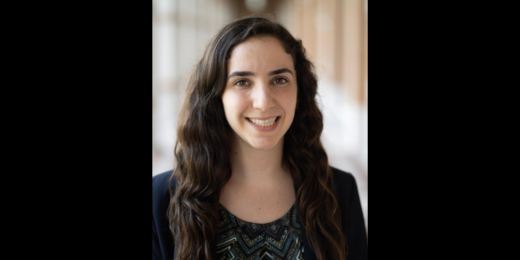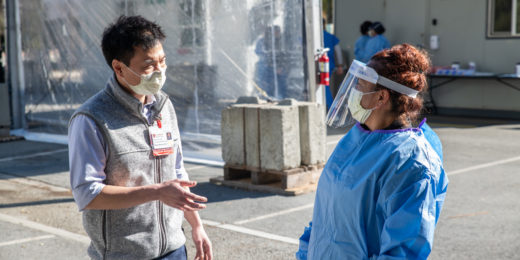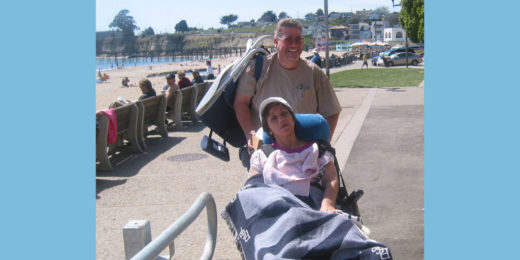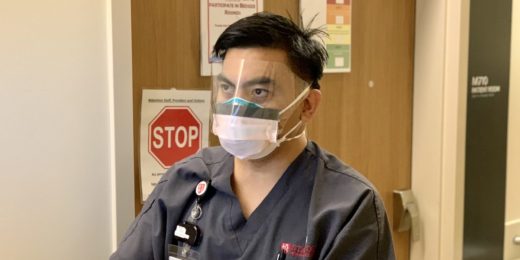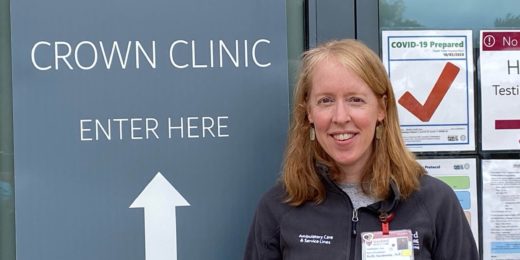This Voices of COVID story shares how Amanda Chawla, supply chain vice president, kept Stanford's health care workers protected when COVID-19 caused PPE shortages.
Month: February 2021
How a Nobel laureate’s life story and encouraging words inspire my scientific journey
Editor's update: Emily Ashkin is featured in a podcast from The Lasker Foundation. My legs were starting to ache from standing by my research poster …
“Like a jewel”: Young scientists help solve a common blood disorder’s mystery
Young scientists contributed to research that revealed the structures of enzymes behind the common disorder G6PD deficiency.
Did COVID affect your use of alcohol? Tobacco? Marijuana? Here are 3 reasons why
Addiction specialist Keith Humphreys explains how the pandemic has affected three factors driving substance use — cues, comfort and convenience.
Pain relief device uses real-world evidence to gain clearance, expanding options for kids
Tracking a pain-relief device's success in patients who aren't in clinical trials is seen as a promising approach to expanding treatment options for kids.
Capturing how our choices shape epidemics (and the COVID-19 pandemic)
Years before COVID-19, researchers started to develop a mathematical model to better represent how behavioral changes can affect the course of an epidemic.
How long will a healthy older person live? A substance in blood may provide a clue
Blood levels of a brain-derived substance in people in their 90s and 100s accurately predict how much longer they're going to live.
“Tremendously grateful”: Running drive-through COVID operations at Stanford Health Care
This Voices of COVID story features physician assistant Thanh Khong, who manages testing and vaccination operations for Stanford Health Care.
Walk With Me: Learning from patients and family partners
Medical student Marcello Kendrew Chang shares the experience of a family caregiver he met during Stanford Medicine’s yearlong Walk With Me course.
Less is more? Focused genetic testing recommended for breast and ovarian cancers
Ovarian cancer genetic testing is underused and large gene panels lead to uncertain results, particularly for non-white patients, a Stanford Medicine study finds.
“The team has risen to the challenge”: Nurse steps up during pandemic
This Voices of COVID piece features Charles Ayson, an experienced night-shift nurse on a COVID-19 unit, who is helping his team of nurses navigate the pandemic.
COVID provides opportunity to rethink inequitable roles in global health partnerships
The pandemic has provided an opportunity to examine relationships in academic global health, notes Michele Barry, Stanford Medicine's global health director.
Take heed: Turn to the experts to interpret pharmacogenetic tests
In the burgeoning field of pharmacogenetics, adhering to expert-developed guidelines is increasingly important, a Stanford Medicine physician emphasizes.
“A personal hero”: Caring for COVID-19 patients and medical colleagues
This Voices of COVID piece features nurse practitioner Kelly Sanderson, who is working to keep her patients healthy and her coworkers motivated.
Menstrual cycle more powerful than daily, weekly and seasonal cycles in command of mood, vital signs
Researchers at Stanford are using data from a menstrual cycle tracking app to better understand variation in mood, behavior, and other health parameters.
A cancer treatment that tackles heart disease?
A Stanford-developed anti-cancer therapy currently in clinical trials may also reduce vascular inflammation in heart disease.



